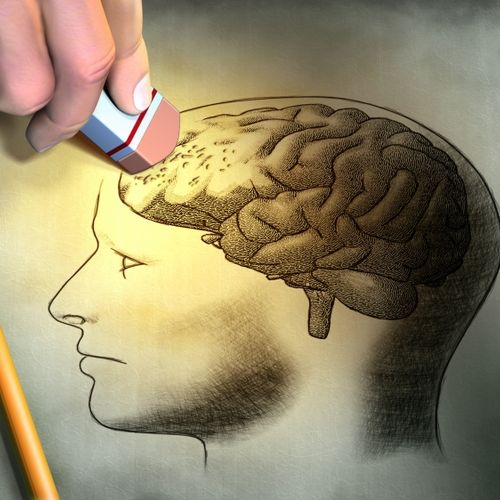
| Added | Tue, 20/12/2016 |
In many languages, there is a common expression "Lying like an eyewitness." And it has become so popular for a reason. The stories that people tell are usually unreliable. And this is not necessarily related to conscious deception. What a person perceives and remembers is usually subject to distortions, which are influenced by the experience gained earlier, selective attention, personal interpretation of events, emotional state at the time of the incident, etc.
In the article "Lie recognition in the study of NOF" we have already dwelt on what variants of distortion of events by their eyewitnesses may occur in the study of NOF. Here we will look at the various psychological effects that affect the witness and his testimony.
One of the most famous effects is "inattention blindness". Its essence lies in the following: often a person may completely fail to notice even a very bright and essential detail that is literally "under his nose" if he is distracted by some other task (for example, trying to consider something, calculate, remember, study). And the more important the object of distraction seems to a person, the more "blind" he is to other details. As an example, we can recall a children's puzzle based on distraction:
"At the final stop, fourteen men and two women boarded the bus. At the first stop, two men got off and two women entered. At the next stop, almost all the men got out (only three remained), and at the next five women entered. After driving about half a kilometer, the bus stopped, and another man entered it. How many stops were there on the route of the bus?"
If you do not know in advance that you need to count stops (and there are only three of them), then attention is focused on frequent variables – the number of men and women. It is often impossible to answer the final question.
The next effect, "attention overload", is somewhat similar to the previous one. It is based on the peculiarity of human memory, which is able to concentrate and analyze only a small number of elements at the same time. As an example , we can give a simple task:
"Two workers unload two wagons in two days. How many wagons will 6 workers unload in 6 days?".
When solving it on paper, it seems simple, but when solving it in the mind, it causes problems because the amount of data that needs to be stored in memory to solve it exceeds the capacity of working memory, making logical conclusions impossible. Thus, small amounts of seemingly simple information cause confusion and difficulties with its perception and analysis.
The effect of "delaying close attention" is based on the fact that the human mind is able to keep its attention on an event for only about 10 minutes, then it begins to be distracted by other events and details around. Thus, over time, it becomes more and more difficult to hold attention and memorize information. Anyone who has listened to long lectures is probably familiar with this effect.
One of the important effects for researchers of NOF is the "substitution of memories", which consists in the fact that when mentally or verbally reproducing events, the memory of it changes, since the neural pathways are activated differently each time. As a result, a person under the influence of his own opinion and fantasies, as well as new knowledge gained after the incident, remembers not what he really saw and felt, but a completely new event structure. So, for example, leading questions can "force" an eyewitness to "remember" details that were not there at the time of observation.
The previous effect can also be attributed to the substitution of memories caused by strong emotions or intense expectation of events.
A variant of the memory substitution effect is "false memory". When it manifests, a person independently or by imposing information from the outside can eventually "remember" an event that did not take place in reality at all, and believe in this memory. Elizabeth Loftus, a psychologist at the University of Washington, described an experiment to create a false memory in a 1997 article for the journal Scientific American:
"When during the first conversation one of the participants was asked about this unfortunate incident at the wedding, he replied: "I don't understand what you're talking about. I've never heard of it before." However, in the second conversation, he already answered differently: "The wedding was in the open air. We were fussing all the time, so maybe I could accidentally hit someone and spill a glass of punch or something. Yes, I made a big mistake. And then they yelled at me."
Conclusion
All people are subject to the above effects. The probability that they will manifest depends on the emotional and physical condition of the witness both during the event itself and after it, and during the interview. Thus, due to differences in the perception of reality, people's testimony about the same incident can vary significantly. And since a lot of factors affect the perception, memorization and reproduction of the details of the event, you should not unconditionally trust the testimony of witnesses, they can only be used as additional information to material evidence (photographs, videos, etc.), which should form the basis of the evidence base of any investigation.
Additional materials:
Log in or register to post comments
